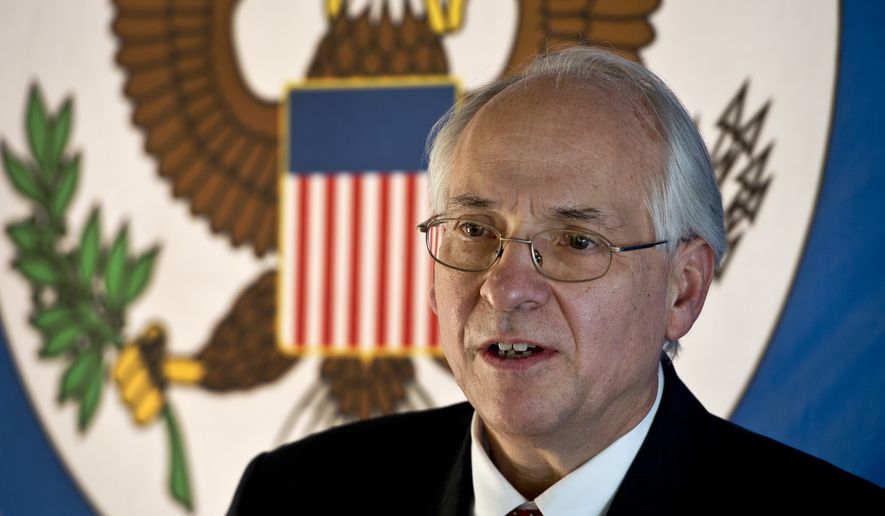The Trump administration, facing pressure to address the violent political crisis in Sudan, announced Wednesday that veteran diplomat Donald Booth has been named a special adviser focused on the troubled northeast African state.
Sudan has been in turmoil since the ouster of longtime authoritarian President Omar al-Bashir in April. Sudan’s military has clashed with civilian protesters over the pace and scale of a transition to democratic rule.
Tensions soared early this month when Sudanese security forces violently dispersed a major protest on June 3 in Khartoum, killing over 100 people in the capital and across Sudan in a sweeping crackdown, according to protest organizers.
With the United Nations and regional powers rushing to contain the crisis, the Trump administration had faced pressure to join the mediation effort. U.S. Assistant Secretary for Africa Tibor Nagy is currently in Khartoum, reportedly trying to push the heads of the military council and the civilian opposition to find a solution to the political crisis.
Mr. Booth “will lead U.S. efforts to support a political solution to the current crisis that reflects the will of the Sudanese people,” according to the State Department.
“His appointment demonstrates that the United States has a firm commitment to the Sudanese people and efforts to advance a peaceful political solution,” spokeswoman Morgan Ortagus told reporters Wednesday.
Mr. Booth, 65, served as special envoy to Sudan and South Sudan under the Obama administration, helping mediate the August 2015 peace agreement and a yearlong decrease in conflict. Ultimately, Mr. Booth’s work in Sudan led to the U.S.’s decision to lift decades-old sanctions on Sudan.
Mr. Booth has broad experience in Africa, having served as ambassador to Ethiopia, Zambia and Liberia. Additionally, Mr. Booth has served as director of the State Department’s Office of West African Affairs and deputy director of the Office of Southern African Affairs.
Congress has also pressed the administration to do more about the current Sudan crisis and support efforts by civilian leaders to move toward democratic rule.
“It is crucial that the United States work to promote a peaceful transfer of power to the Sudanese people, who deserve self-determination and freedom,” said House Majority Leader Steny H. Hoyer, Maryland Democrat.
There were signs of at least a temporary respite on the streets of Khartoum Wednesday, the Associated Press reported, as civic activists called off plans for a general strike and civil disobedience campaign as more businesses reopened and traffic returned to its normal bustle.
The Forces for Declaration of Freedom and Change, which represents the protesters’ demand for civilian rule, called on Sudanese to return to work across Sudan, after the three-day general strike, on late Tuesday, the AP reported.
Both the military and civilian forces appear to be anxious to step back from the brink of outright confrontation.
“We are highly optimistic that the negotiations will be resumed, and things will be back to normal and they will achieve an agreement,” said Yousef Hassan, a teacher from Khartoum, told the wire service.




Please read our comment policy before commenting.